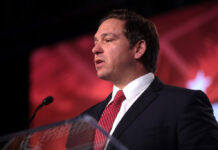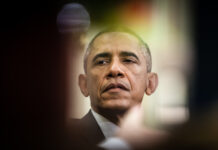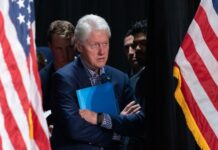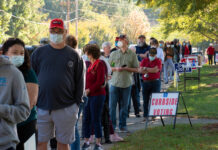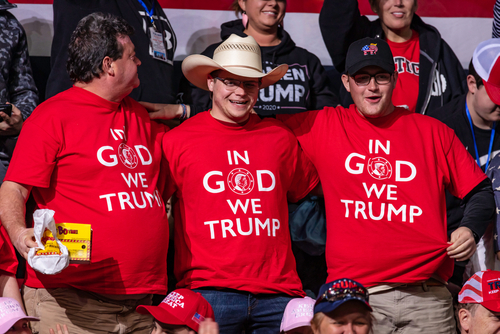
As the political eyes of the nation turn towards Iowa, thousands of steadfast Republicans are preparing to make their voices heard in what is anticipated to be the coldest caucus in the state’s history. Despite the brutal winter weather, with forecasts predicting sub-zero temperatures and biting wind chills, the commitment to civic duty remains unshaken among the electorate.
The Iowa Republican Caucus, a time-honored tradition that has often set the tone for the presidential nomination process, is expected to see a robust turnout. Historically, Iowans have demonstrated a serious dedication to participating in this unique democratic process, undeterred by snow or cold. This year, the stakes are high as 40 delegates are up for grabs, ready to cast their support at the Republican National Convention.
Dr. Ben Carson preaching truth. DJT risked everything for this country, everyone else uses it to line their pockets. DJT 2024. LFG!!! #IowaCaucus pic.twitter.com/XEgeCbKhfG
— Burnin_T_Ranch (@BurninTRanch) January 15, 2024
Former President Trump enters the caucus with a commanding lead in the polls, boasting an average of 51 percent support, significantly ahead of his closest rivals, Ron DeSantis and Nikki Haley. Trump’s longstanding engagement with the state, coupled with deep-rooted connections fostered over eight years, positions him as the favorite. However, the unpredictable nature of the Iowa caucuses leaves room for potential surprises.
The importance of Iowa in the nomination process cannot be overstated. While the state awards only a fraction of the total delegates, its impact on the momentum of a campaign is profound. A victory in Iowa can catalyze donor support and media attention, propelling a candidate forward with the coveted ‘Big Mo’—the momentum that can make or break a campaign.
Trump just posted this on Truth Social. 🔥🔥🔥#IowaCaucus pic.twitter.com/FP59bBJsQS
— Freedom 🇺🇸🦅 (@PU28453638) January 15, 2024
Despite the challenges posed by the weather, the Republican Party of Iowa has been proactive in ensuring that the caucus process runs smoothly. With 1,657 precincts across the state, party officials have emphasized the importance of indoor registration to protect voters from the harsh conditions. Eligible participants are gearing up to elect their precinct chairs and secretaries before engaging in the time-honored tradition of listening to speeches and casting their votes.
The caucus system, deeply rooted in American political culture, offers a more personal and communal voting experience compared to primaries. Voters gather at local sites, such as school gymnasiums and public libraries, to directly engage with the electoral process.
This face-to-face aspect of caucusing underscores the grassroots nature of selecting a nominee and reflects the deeply held values of participatory democracy.
As the night unfolds, all eyes will be on Iowa to see if the expected frontrunner solidifies his lead or if the state once again delivers a surprise that reshapes the race. The resilience of Iowa’s voters, braving the life-threatening cold, serves as a testament to the enduring spirit of American democracy and the pivotal role that the heartland plays in shaping the nation’s political future.
